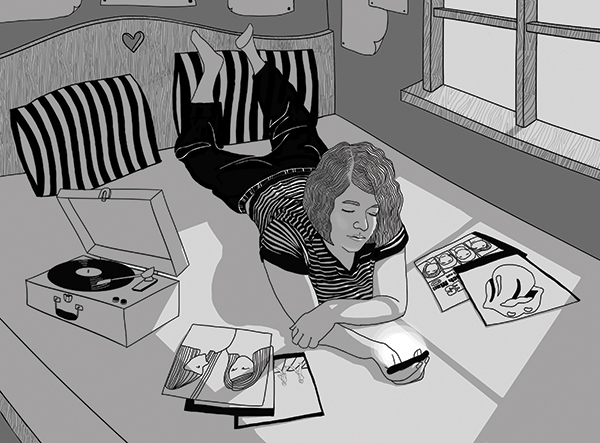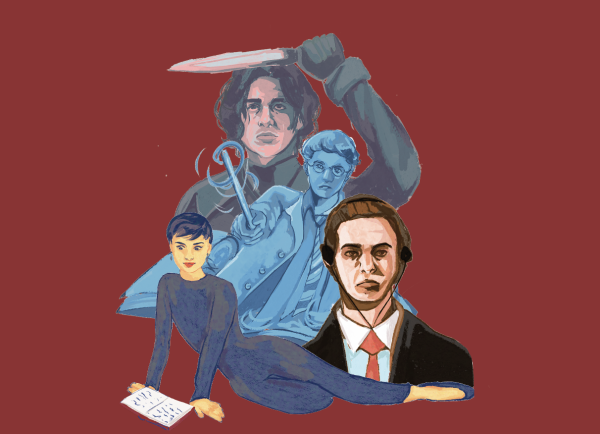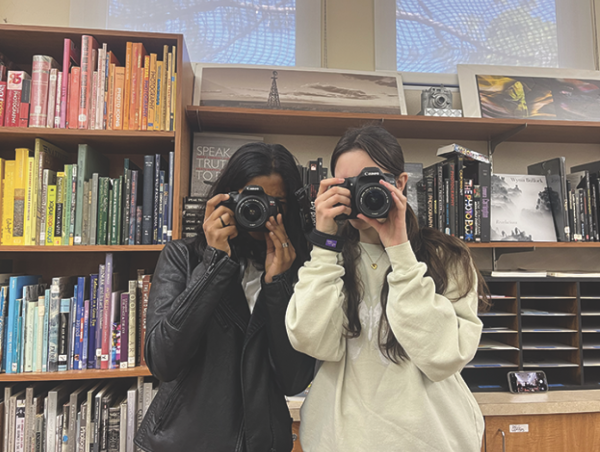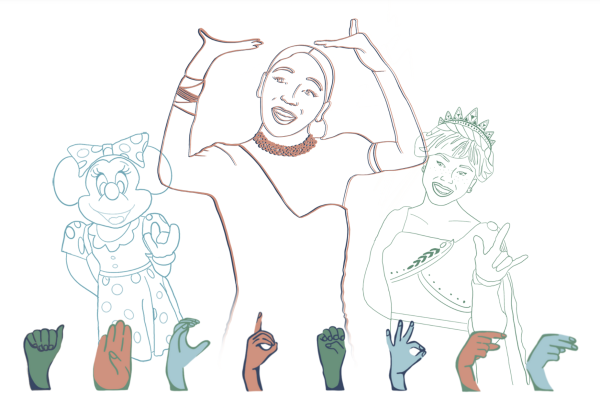C Mag Perspective: Drawbacks of the Digital Age
As technology advances, the experiences that make us human are increasingly undervalued.

Ever since a Verde verbatim came out about self-driving cars, for which I was quoted sounding like paranoid grandma meets conspiracy theorist with a low I.Q., technology being my “biggest fear” has been a running joke among my friends. Granted, I gave the interview after getting next to no sleep the night before and I sounded (and looked) a little less polished and intelligent than I like to think I normally do, but the sentiment still rings true. Personally, I believe that rapid advancement in technology comes with heavy costs. In the heart of Silicon Valley the name of the game is technological innovation. But, we have to pay attention and be skeptical of what we as a society are so blindly agreeing to. We cannot immediately accept new and different things as better. Modern society seems to be obsessed with the notion of change just for the sake of it. Innovation implies improvement, not just something new.
More and more people increasingly rely on technology for information, entertainment and task efficiency, which has caused a mass dependency on instant gratification. This faster, more restless lifestyle makes people impatient and stops them from partaking in formerly treasured rituals because they are no longer necessary. We crave speed and instant highs more than meaningful and thoughtful experiences.
One example of a meaningful ritual that we have phased out is letter-writing. Although news can be conveyed much more quickly in a text or a phone call, it pains me that we have lost the pleasure of writing and receiving letters. There’s a unique beauty in having a personal message from someone immortalized on paper and something thrilling about receiving long anticipated letters in the mail. However, letter-writing is understandably obsolete now. Constant connectivity with phones leaves people with little doubt about what’s going on in the lives of everyone around them and eliminates the need for such a slow form of communication.
There is something to be said about the themes of prophetic science-fiction movies of the ’60s to ’90s that foresaw a future in which machines rendered humans totally obsolete. There is some discussion now about job loss to machinery, a concept we have been familiar with since the Industrial Revolution, but now the scale is larger and the stakes are higher. I am not proposing you throw your phone off a bridge and go hide under a rock for the rest of your life so the robots won’t get you (although if you do, you might find me under that rock in a few years, I could use some company). I’m not even suggesting you give up technology you may already depend upon. I just think you should consider what aspect of our humanity we must sacrifice in order to accept and incorporate the latest technology into our lives. What do we, as a society, lose when the invention of one thing inevitably leads to the elimination of another?
Some of us are sentimental and attached to things like records and bound-paper books and whatever the equivalent of those will be in 40 years when the next generation looks back on the forgotten relics of their childhood. I mourn the loss of certain things that I feel gave life enriched meaning, several of which, like the aforementioned letter-writing, were already on their deathbed when I was born.
I lie on my bed, staring up at the ceiling as David Bowie’s voice fills every corner of my room. The decline of records is a prime example of how, as new technology is welcomed into our society, our interactions with the world around us shift. Records create unique intimacy with the artist and their work by allowing you to interact with music more meaningfully, listening to the whole album, together the way the artist intended for it to be heard. Unlike playlists, which we often skip through and which are often interrupted by ads, records require you to be present. They have multiple sides that you have to physically change, each side with a soul and flow of it’s own. It isn’t lazy. You have to take care of your records, make sure they don’t get scratched. And when they do, you know every glitch and imperfection etched on your vinyl. Only you can discern lyrics from the creaking and groaning they make in places that were once songs recognizable to others. This experience of listening to a careful selection of songs brings you closer to the artist and their work: It puts you into their head. Why did they choose a certain song order? Why that particular chord progression? When you own records and listen to them a thousand times it feels as though you’re getting to know the artist better which each new lyric. Owning a record is commitment, unlike putting a song by an unknown artist that you heard once on a playlist. You learn about their life story and tend to be more invested in each artist as a person, more so than what is common for the modern age of relative impersonality. I smile to myself as the familiar sounds of the iconic Ziggy Stardust album fill my bedroom and my eyes begin to flutter. Awake or not, I know the exact moment “Ziggy Stardust” fades into “Suffragette City.”
To me, the greatest threat of technology is that it will little by little replace the things that make us human by making us think and feel. I cling to print books and records because, while the experiences do feel more special to me, most importantly they represent a slower lifestyle that I believe encourages creativity and original thought, which I view as the essence of humanity and the opposite of a robotic standardization of everything. What frightens me most is that mass media and technology have influenced people to the point that they question things less and less. Value on general knowledge appears to take a back burner when Google and other search engines can provide you with almost any information within seconds. In recent years, there has been a huge homogenization of popular and Internet culture and the media that people consume, which has led to the majority of people (especially in densely populated politically and socially homogeneous areas) reading, watching and hearing the same few things and regurgitating them. I believe that if we want to fight back against the inexorable mass “improvement” of society via technology, we must be more selective about embracing innovation and more reluctant to give up what we cherish.





